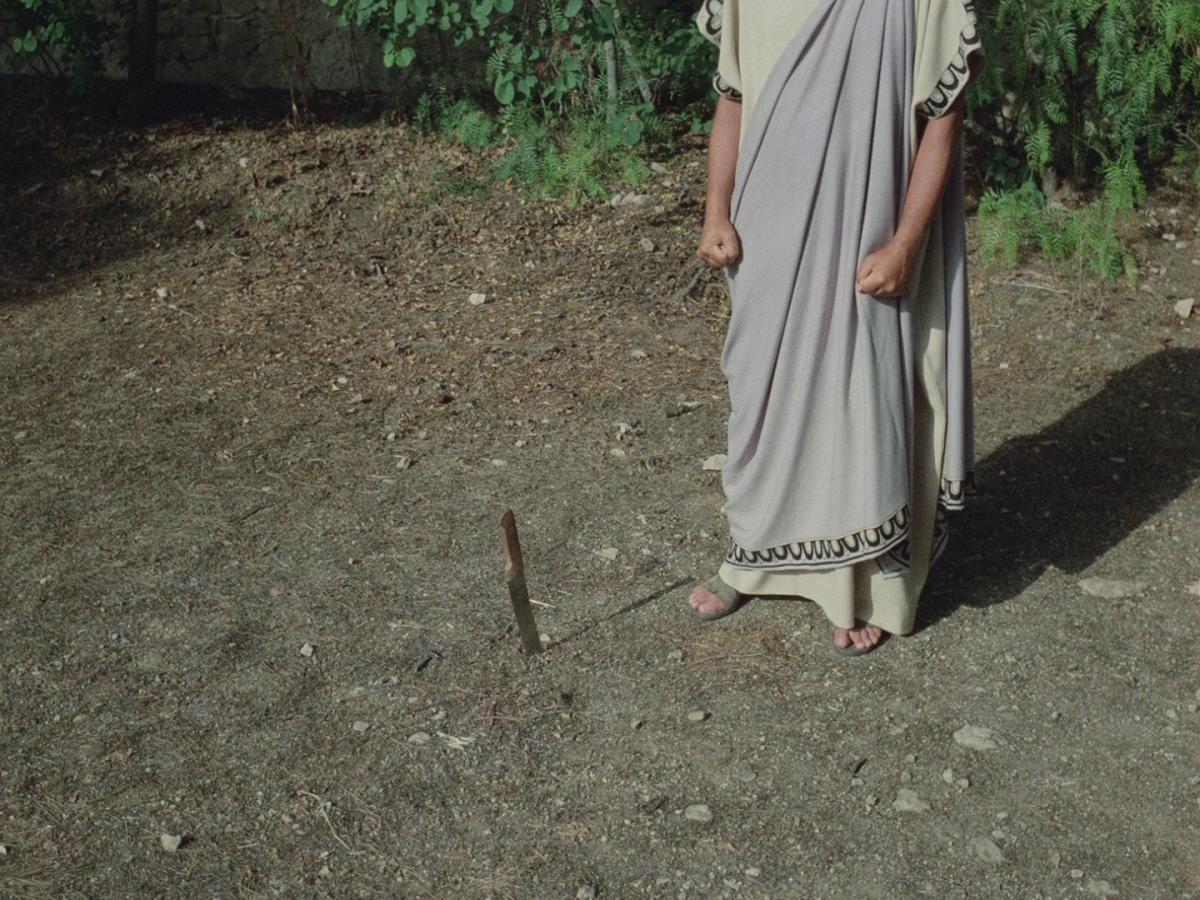Danièle Huillet + Jean-Marie Straub: Uit ontzetting / De la stupeur

Starting on October 5th, Goethe-Institut Brussels and CINEMATEK present the first complete retrospective of the work of Danièle Huillet and Jean-Marie Straub in Belgium.
The work of Danièle Huillet and Jean-Marie Straub is considered to be one of the most distinctive, beautiful and uncompromising oeuvres of modern cinema. Danièle Huillet (1936–2006, France) and Jean-Marie Straub (1933-2022, France) met in 1954, and created a joint life's work over a period of fifty-two years: Their films have consistently confronted the politics of post-war Europe, beginning with the rearmament of Germany, exposing layers of history in order to reveal the continuity of the violence of the past in the present.
“This retrospective is the result of a twofold desire: to show the films Straub made after 2006, most of which were shot digitally (and almost none of which have yet been shown in Brussels), and to show, in the same programme and sometimes within the same screenings, the films they made together between 1962 and 2005 (starting with the films kept in Brussels).
[…] One of the remarkable features of Huillet-Straub’s and Straub's films is that they are shot in three languages: German, French or Italian, as well as the attention paid to each of these languages, to what they hold of a country's history (the directors lived in Germany, France as well as Italy).
Although all their films contain texts written by others (full works or excerpts), the choice of these texts is always based on experiences that have marked them. And over the years, the transition from one language to another contributed to the specificity of their approach to sentence structure and diction. After shooting their first film in French, for example, with mostly Italian actors, they began to approach the German language differently.
So their films are primarily aimed at people who understand their language. In the case of Chronik der Anna Magdalena Bach, with off-screen commentary, they made sure to make 5 versions: a German, French, Dutch, English and Italian one. This focus on listening is certainly not exclusive, first Huillet, then Straub and his accomplices also provided subtitles. Although the use of a global language of communication goes against the way these films work, we partially resort to English subtitles to open up the programme to more people, inviting everyone to definitely listen to the spoken languages.” – Aristide Bianchi
Despite the importance and influence of the filmmaker’s work, there has not yet been a full Belgian retrospective of their films. Their oeuvre, which transcends linguistic and territorial boundaries, is especially relevant to the Belgian cultural scene - a place that has always already been accustomed to multilingualism, intercultural understanding and diverse communities.
This comprehensive retrospective is presented in two parts. The first part, which starts on Oct 5th and whose selection you can discover here, we will close with Trop tôt / trop tard, the French spoken version of a film shot partly in France, partly in Egypt. The second part, which will run from December to February, will start with the English spoken version of the same film, Too Early / Too Late.
More information here.

